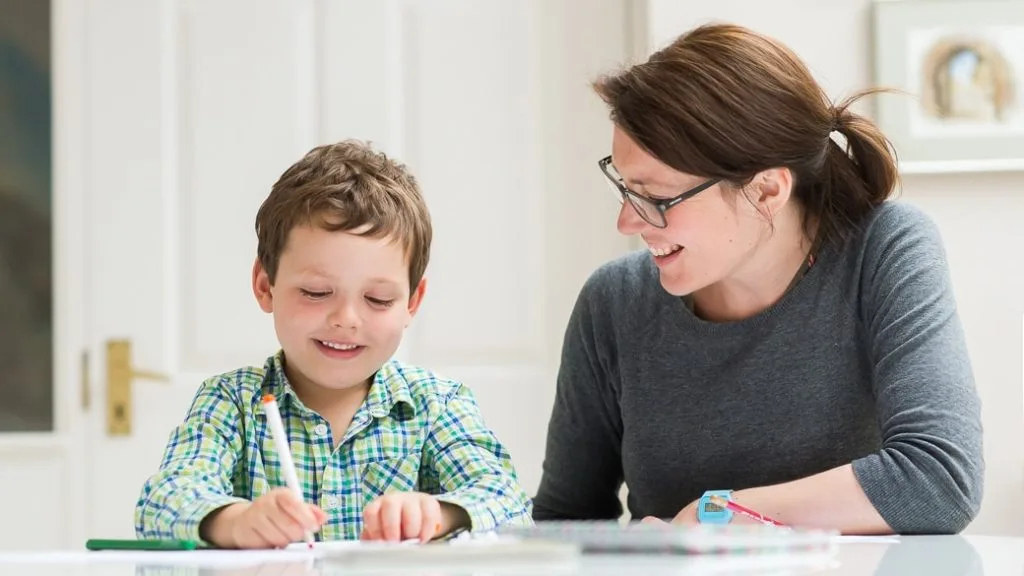1. Start sooner rather than later
Tutoring should not be something inflicted on a student; tutoring is more likely to be successful if students feel like partners in the process. Students are more likely to engage and make progress if they understand the purpose of tutoring, so it is important that students understand why you are considering tutoring, or why you have employed a tutor. If it was a result of a teacher, or school, raising awareness of gaps in knowledge or skills, or specific challenges your child faces, talk to your child about this. If it is because you are looking at entrance to a new school, share the requirements of different schools with your child, and where possible let them be part of the decision process regarding school choice.
2. Focus on what motivates your child
Motivation is crucial for effective learning; it is an important precursor to participation and achievement. Motivation is literally what moves us. Understanding what motivates your child to learn will help you, them and the tutor understand what is most likely to move them towards learning.
- Are they driven by being able to do something new?
- Are they keen to keep practising to get better?
- Do they like competition?
- Do they get shut down when there is competition?
- Are they collectors of facts and knowledge?
- Are they curious to understand why?
- Are they more enthusiastic about the extra-curricular offers at school than what goes on in the classroom?
- Do they perform better in a small, familiar environment, or when stimulated by lots of people and new experiences?
Helping your child think about these, and similar, questions will help them understand themselves as individuals, and learners. It will also help you present school options, and tutoring, in a way that is most likely to resonate with them, and thus motivate them. For example, if one school has a swim team, and your child lives to swim, the motivation to join that team might in turn motivate them to focus on academic entrance tests.
3. Model learning
If our children, and students, see us as readers they are more likely to read themselves. If our children, or students, see us admitting to, and learning from mistakes, they are more likely to develop a growth mindset. If your child sees you engaging in tutoring, they are more likely to engage in tutoring themselves. So, talk to your child about what they have learnt, encourage them with homework, and support them when they encounter challenges: be that scheduling, content, or confidence. Talk to them about what you are learning day to day, the things you are working on, and when you need to demonstrate perseverance. Keep in touch with the tutor. The best learning happens when there is a 3-way partnership between the learner, the parent, and the teacher.
Parents engage in tutoring for their child with a desired outcome: for some this is to fill gaps in content or skills knowledge; for others it is to build confidence; and for many it is with a fixed idea of a certain school they would like their child to attend. When specific schools are the target, and particularly when they are academically selective, with a hierarchical acceptance process, as is the case with most grammar schools, it is essential to support students’ self-esteem through the process. It is important to help encourage a growth mindset.
4. Effective learning is the goal
Carol Dweck is famous for her work on growth and fixed mindset; these focus on the underlying beliefs people have about learning and intelligence. When students believe that their brain is a muscle that they can grow and develop, they understand that effort improves that muscle, therefore they put in the necessary work to lead to higher achievement. Many students find this easier to apply on the sports field, where muscles are more visible than in the classroom. Conversely, if students see intelligence as a fixed trait, if they constantly compare themselves to others, if they hide or shy away from mistakes, they are more likely to struggle with frustration and setbacks, and more likely to give up. Parents and tutors can encourage a growth mindset by praising student effort and the process of learning.
“Process praise keeps students focused, not on something called ability, that they may or may not have, and that magically creates success or failure, but on processes they can all engage in to learn.” Carol Dweck
5. Help your child to find opportunities to put learning into practice.
Some students are motivated by the knowledge itself, or how that knowledge fits into the bigger picture, many find it a struggle to feel motivated or to learn things when they cannot see the application of that learning. For instance, teaching students about interest rates is usually met with greater general enthusiasm, than circle theorem, though perhaps not in the current economic climate!
If your child has been doing vocabulary work, look for opportunities for them, and you, to use new words, play games around these words, spot them when you are reading, talk about etymology. If you child has been learning about ratio and proportion or capacity, do some cooking together and practise these skills. Play word games, number games, critical thinking games – try to make it fun and sociable.
6. Be there when it is hard.
Learning can be hard.
Extra lessons at the end of a long day, or a long week, can seem too much.
School entrance assessments can feel like a huge, and unwanted, pressure.
When your child is in a learning pit, listen to them. Try to help them get to the nub of what feels insurmountable (is it the content, the quantity, the pressure?) by asking questions like:
- What is the real challenge?
- What would help you climb out the pit?
Then work with your child to problem solve how you can help them get there.
If you have any questions about tuition, please get in touch.

